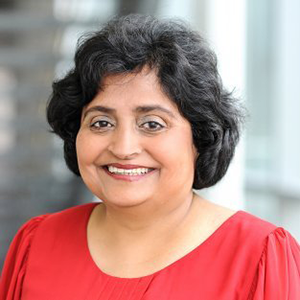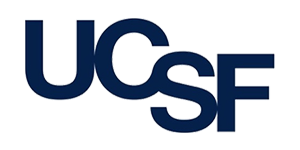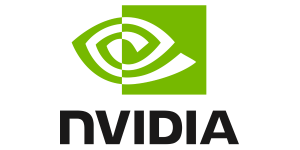Session Abstract – PMWC 2020 Silicon Valley
One of the most promising areas of health innovation is the application of artificial intelligence, machine learning, and deep learning primarily in medical imaging. The increase in the amount of data and the possibility to use ML/DL to identify findings either detectable or not by the human eye, radiology is now moving from a subjective perceptual skill to more objective science. Radiologists, who were at the forefront of the digital era in medicine, can guide the introduction of AI solutions that accommodate ethical and regulatory requirements into healthcare.
Session Chair Profile
Biography
Sharmila Majumdar’s research work on imaging, particularly magnetic resonance and development of image processing and analysis tools, has been focused in the areas of osteoporosis, osteoarthritis, orthopedic imaging, and lower back pain. Her more recent focus has been on artificial intelligence applied to biomedical imaging. Her research is supported by grants from the NIH and corporate entities, and is diverse – ranging from technical development to clinical trials. She was selected as a fellow of the American Institute of Medical and Biological Engineers in 2004 and a fellow of the International Society of Magnetic Resonance in Medicine in 2008. In 2007, the UCSF Haile T. Debas Academy of Medical Educators at UCSF awarded her the “Excellence in Direct Teaching and/or Excellence in Mentoring and Advising Award”. She was awarded the ISMRM Gold medal in 2016. She has published extensively in highly regarded journals and serves as a reviewer and on the Editorial Board of multiple scientific journals.
Speaker Profile
Biography
Assistant Professor of Radiology and Biomedical Informatics (courtesy) at Stanford University and Associate Director of the Stanford Artificial Intelligence in Medicine and Imaging Center (AIMI). He is Principal Investigator on federally funded work focusing on integrating medical imaging data with clinical data to improve the delivery of medical imaging diagnostics on a global scale. His work is among the first to evaluate delivery of machine learning tools for medical imaging in a clinical setting and leads multi-institutional clinical trials for evaluation of new AI medical imaging tools in the clinical practice setting. He leads dozens of industry collaborations on medical imaging AI that feature co-engineering new applications to transform healthcare delivery. He has published over 75 scientific publications and his work is regularly featured in national news outlets such as The Wall Street Journal, VICE News, and NPR.
Speaker Profile
Biography
Christopher P. Hess, MD, PhD completed his clinical residency and fellowship training at UCSF after obtaining his doctorate in electrical engineering at the University of Illinois. His research interests lie in clinical and translational medical imaging, including artificial intelligence. A fellow of the American Institute for Medical and Biological Engineering, Dr. Hess has published over 150 peer-reviewed papers in clinical and scientific journals. His research has been funded by the NIH and multiple industry partners. A highly respected educator and leader, Dr. Hess has delivered over 150 presentations in more than 20 countries. He is on leadership of the International Society for Magnetic Resonance in Medicine, the Radiological Society of North America, the American Society of Neuroradiology and the Academy of Radiology and Biomedical Imaging Research, is Deputy Editor for Radiology and serves on the editorial board of the American Journal of Neuroradiology.
Speaker Profile
Biography
Dr. Pedoia is a data scientist with a primary interest in developing algorithms for advanced computer vision and machine learning for improving the usage of non-invasive imaging as diagnostic and prognostic tools. Her current research focus is on exploring the role of machine learning in the extraction of contributors to musculoskeletal disorders as osteoarthritis (OA). She is studying analytics to model the complex interactions between morphological, biochemical and biomechanical aspects of the knee joint as a whole; deep learning convolutional neural network for musculoskeletal tissue segmentation and for the extraction of relevant features from quantitative relaxation maps for a comprehensive study of the biochemical articular cartilage composition; with ultimate goal of developing a completely data-driven model that is able to extract imaging features and use them to identify risk factors and predict outcomes.
Speaker Profile
Biography
Halabi is responsible for helping drive the company’s growth and innovation strategies across the healthcare ecosystem. With nearly 20 years of experience in advanced technologies, he partners with thought leaders and world-class organizations to transform healthcare through the application of deep learning and high-performance computing to enable precision medicine initiatives and evidence-based medicine. Prior to this role, Halabi previously served in leadership positions as senior physical design engineer and VLSI project lead for NVIDIA, which he joined in 2005.
Speaker Profile
Biography
Saikiran Rapaka, Ph.D. is the Head of Strategy for Artificial Intelligence and Digital Innovation at Siemens Healthineers. He supports a large team working on advancing precision medicine through the development of high performance, AI-based clinical products for diagnostic imaging, image-guided therapies and laboratory diagnostics. In his previous role, he was a technologist who lead the development of multiple clinical products and prototypes covering medical mage analysis, Artificial Intelligence and Digital Twin technologies for patient-specific physiological modeling. His work has resulted in over 100 issued or pending patents worldwide, and numerous peer-reviewed publications. He received his undergraduate education from the Indian Institute of Technology Madras and doctorate in Mechanical Engineering from the Johns Hopkins University.



















